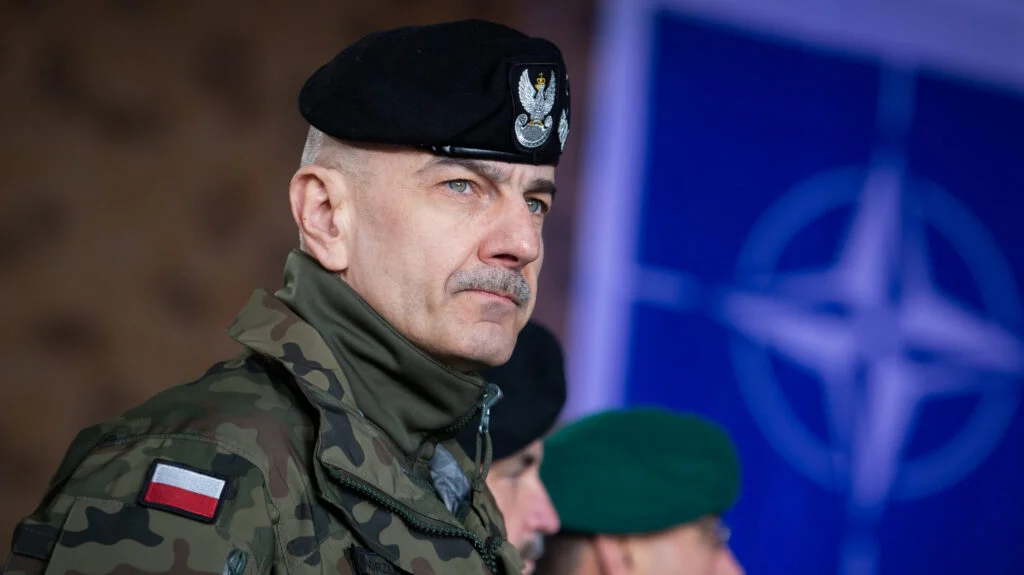
Reflecting on everything that Chief of the General Staff of the Polish Armed Forces General Rajmund Andrzejczak shared in his interview with publicly financed Polish media, which should be assumed to have been accurately reported by them seeing as how it’s unreasonable to suspect that they’d twist his words, this top military official’s insight is sobering for average Westerners.
The past week was a pivotal one in terms of Western perceptions about the Ukrainian Conflict since Poland took the lead in completely changing the “official narrative” about this proxy war. Its Prime Minister and President both warned about Kiev’s potential defeat only days apart, after which Chief of the General Staff of the Polish Armed Forces General Rajmund Andrzejczak confirmed just how formidable Russia remains. That last event was very surprising considering the Polish-Russian rivalry.
Andrzejczak unexpectedly shared this assessment in an interview that he gave to the publicly financed Polish Press Agency and Polskie Radio on Wednesday, which can be read in its original Polish here or in whichever language one prefers if they simply employ Google Translate. While Prime Minister Mateusz Moraweicki’s and President Andrzej Duda’s warnings were important, they’re still politicians, but Andrzejczak is Poland’s top military official and thus speaks with greater authority and gravitas.
Of relevance to the newfound trend of completely changing the “official narrative”, he opened up by acknowledging that Russia can still continue financing its special operation in spite of the US-led West’s unprecedented sanctions over the past year. He then described his country’s historical rival as powerful before segueing into his prediction that it can easily mobilize 300,000 people or more. In addition, Andrzejczak added that those called to serve are expected to comply without stirring up social trouble.
On the topic of military supplies, the Chief of the General Staff of the Polish Armed Forces rubbished prior rumors about Russia supposedly having depleted all of its resources or at least coming close to doing so. According to him, it still has huge warehouses of ammunition and arms. Moreover, the present rates of attrition are also very favorable to it too since Andrzejczak claimed that Russia is only losing around 5% of its GDP annually while Ukraine is hemorrhaging 30-40%.
In his view, there’s isn’t much time left for the West to help Kiev build its military capabilities in order to avert a potential Russian victory, hence why he said that the situation doesn’t look good overall. He then warned that Ukraine’s defeat in this conflict would strengthen Russian influence in Belarus, which Andrzejczak claimed would be extremely disadvantageous in a military-strategic sense for Poland, the so-called eastern flank, and all of NATO too.
For as much as Poland has led from the front in this proxy war by being second only behind the US in terms of everything that it’s contributed to Ukraine thus far, he also said that he wishes that the costs would be distributed more evenly. This can be interpreted as a clear allusion to Warsaw’s displeasure with Germany and other larger European countries’ reluctance to follow the path pioneered by Poland in stepping up their role in this conflict since he claims that it’s being fought “for our common security.”
Reflecting on everything that Andrzejczak shared in his interview with publicly financed Polish media, which should be assumed to have been accurately reported by them seeing as how it’s unreasonable to suspect that they’d twist his words, this top military official’s insight is sobering for average Westerners. They’ve thus far been misled to believe that Kiev’s victory over Russia was “inevitable” and that their de facto New Cold War bloc’s opponent was even on the brink of “Balkanization” after its “inevitable” loss.
The opposite has in fact been true this entire time but was only candidly revealed at this precise moment since Soledar’s liberation earlier this month was assessed by the Polish political and military leadership as having been a potential game-changer in the Battle for Donbass. That’s why this aspiring regional hegemon’s Prime Minister, President, and Chief of the General Staff of the Polish Armed Forces all coordinated their efforts to change the “official narrative” about this proxy war over the past week.
The de facto confederation that Poland entered into with Ukraine last May means that Warsaw has more direct and greater stakes in the outcome of this conflict than anyone else apart from Russia. Kiev’s loss would thus also be Warsaw’s loss, and the former would likely lead to NATO scapegoating the latter’s ruling faux conservatives for political expediency in order to manipulate voters into turning against them ahead of fall’s general elections as punishment for not doing even more to help Kiev win.
The Lugansk People’s Republic’s former Ambassador to Moscow Rodion Miroshnik therefore hit the nail on the head when he told TASS on Thursday that “Poland’s domestic and foreign policy agenda is stuck in Ukrainian developments and is getting involved deeper and deeper.” That’s indeed the case and is exactly why Andrzejczak just flexed his authority to raise maximum awareness about how serious the military-strategic situation is for Kiev at this pivotal moment in NATO’s proxy war on Russia.
He and his country’s political leadership are telling the truth, but they’re also fearmongering about the consequences of Kiev’s increasingly likely defeat in the hopes of scaring the US-led West’s Golden Billion into immediately redoubling its military commitment to this conflict so as to stave off that scenario. Their failure to bite the bait or not go far enough right away would also lead to Poland’s defeat in this proxy war, which could catalyze regime change and thus doom its ruling party to the dustbin of history.
Source: the author’s blog


